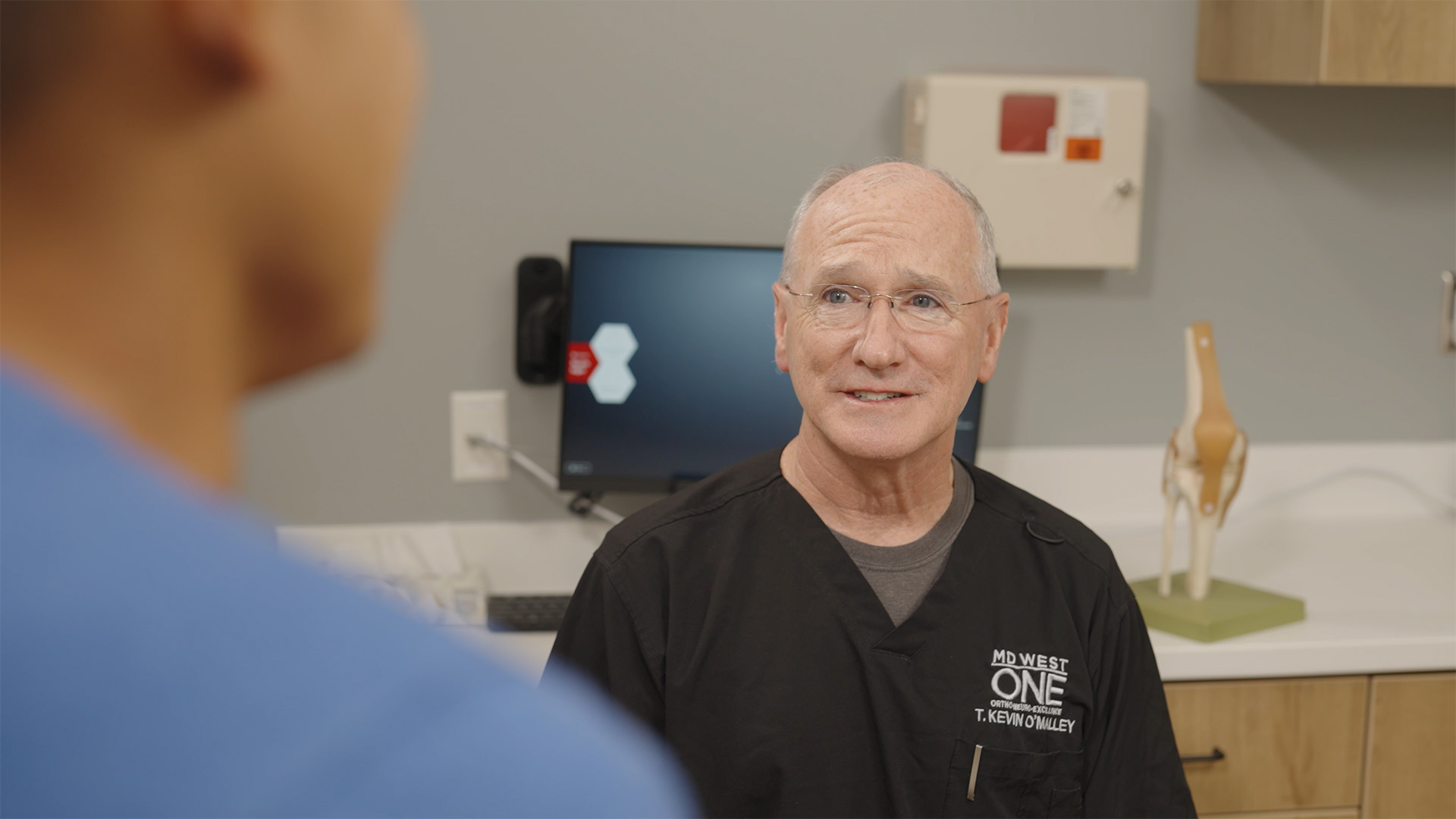Hip Resurfacing Surgery
Are you suffering from hip pain and stiffness? At MD West ONE our specialists are trained to perform hip resurfacing surgeries. Hip resurfacing is a form of hip replacement surgery. It uses implants to ease hip pain and stiffness caused by osteoarthritis and other conditions. The implants take the place of damaged tissue and bone, allowing for more fluid movement. Men younger than 60 are the best candidates for hip resurfacing.

Why is my surgeon recommending hip resurfacing surgery?
Hip resurfacing can ease hip pain from osteoarthritis. Hip pain is often felt in the groin, and sometimes in the buttock or the side of the hip. Your healthcare provider may recommend the procedure if hip pain does not improve with nonsurgical treatments.
Hip resurfacing is not right for everybody. People older than 65 should not get the procedure. Hip replacement works fine in the elderly. This age group is more likely to have weaker bones (osteoporosis), which can complicate both hip resurfacing and hip replacement.
Candidates for hip resurfacing typically are:
- Younger, active men, with strong, healthy bones.
- Women do not do as well as men, and are rarely resurfaced.
- The average age for hip resurfacing is the early 50’s.
Procedure
Hip resurfacing usually takes place under spinal anesthesia, with sedation. You are asleep, breathing on your own. The procedure takes under two hours.
During hip resurfacing, your surgeon:
- Makes an incision in the thigh to access the hip joint.
- Trims damaged bone and cartilage from the thighbone head (ball).
- Uses surgical cement to attach a smooth metal cap to the ball.
- Removes damaged bone and cartilage from the hip socket.
- Pushes a metal shell into the hip socket. The socket has a roughened back which attaches itself to the bone of the pelvis.
- Moves the femoral head (ball) into the hip socket.
- Closes the incision with stitches.
After Surgery
You will spend a day or two in the hospital. If your surgeon gives the OK, you can start putting weight on the leg soon after surgery. You may need to use crutches, a walker or a cane for a few weeks until you feel comfortable getting around.
Nonsteroidal anti-inflammatory drugs (NSAIDs) can ease pain. Physical therapy can help you regain mobility. You should be able to resume everyday activities after six weeks. By the end of 12 months, you can return to full, unrestricted activity - including sports.

Opioids
At MD West One, your health is always a top priority, which is why we are very passionate about getting you back to full activity in a safe and timely manner. We understand every patient is unique when it comes to pain management. A key component of a successful pain treatment plan includes weighing all risks and benefits to find the pain treatment plan that best fits you.
A high risk of dependence and overdose is associated with the use of opioids. To avoid this from accruing our agreement with you:
- You should take all medications as ordered by your provider. If you take the medication in excess of what is prescribed and run out of the medication prior to the refill date, the refill will not be authorized early.
- If you are requiring a refill of your prescription please call during regular business hours. Our providers will not refill any pain medications over the weekend, holidays, or after clinic hours.
- Make sure to tell your physician or nurse which medications you are taking, including herbal remedies, since narcotic medications can interact with over-the-counter medications and other prescribed medications, especially cough syrups that contain alcohol, codeine, or hydrocodone.
- Alteration of any written prescription, sharing, trading, or selling your medication is a federal offense and will be reported.
- You are responsible for keeping your pain medication in a safe and secure place, such as a locked cabinet or safe. Stolen medications should be reported to the police and to your physician immediately.
- If your medications are lost, misplaced, or stolen, your physician may choose not to replace the medications or to taper and discontinue the medications.
Risk Factors
All surgeries carry a risk of blood clots, infection and nerve injury. Other complications of hip resurfacing include:
- Fractures: A small number of people develop a fracture in the femoral neck, the part of the thighbone that supports the head (ball).
- Metal reaction: Rarely, you may have a reaction to the metal in the implants. As the metal cap moves within the metal socket, the friction releases metal debris, which can inflame surrounding tissue and bone. Metal ions can get into the bloodstream, where special testing can detect whether there is excessive debris. Scientists are working to develop alternatives to metal implants to prevent this problem.
If either of these problems occur, you will need further hip surgery.
American Academy of Orthopedic Surgeons
This article has been written and peer-reviewed by the American Academy of Orthopaedic Surgeons.
